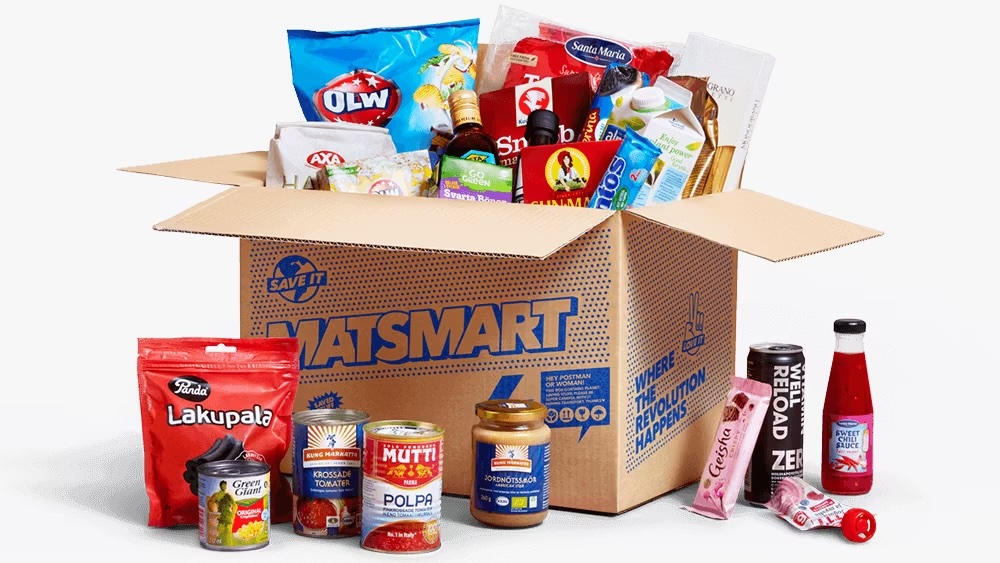 Volunteers at a food bank. Photo: DC Studio_Freepik.
Volunteers at a food bank. Photo: DC Studio_Freepik.
 Volunteers at a food bank. Photo: DC Studio_Freepik.
Volunteers at a food bank. Photo: DC Studio_Freepik.
Food production has increased in recent years, leading to a significant rise in food waste in a world where hundreds of millions of vulnerable people still suffer from hunger. Food waste entails not only social questions, but it also results in a waste of resources and negative impacts on the environment, as well as high financial costs. While reducing global food production may seem like the best solution, working towards creating more sustainable and equitable food systems offers a more inclusive and collective approach. The pressing question is: how can we do that? One of the answers is as simple as reducing food waste in our daily lives and in our communities.
This World Food Day, celebrated on the 16th of October, reminds us that every day we have the opportunity to contribute to a more sustainable world, which leads to smaller environmental footprints, less resource extraction, and significant socio-economic benefits. Below, by drawing on examples from Sweden and Bosnia and Herzegovina, we will explore how sustainable food systems can drive change by rethinking food while redistributing excess food to people in need!
Food Banks – a sustainable initiative to redistribute food
Food banks are organizations that address food waste, hunger, and the need for efficient distribution channels. They collect, store, and distribute surplus food to those in need, serving as a bridge between agricultural producers, manufacturers, retailers, and individuals facing food insecurity. The concept dates back to the late 1960s, when St. Mary's Food Bank - the first food bank - is believed to be credited to John van Hengel, who established it in Arizona. His idea was to collect surplus food from various sources and distribute it to those in need, creating a more efficient system for combating hunger. This social model has since then spread globally, leading to the establishment of numerous food recovery organizations across the world.
Food banks, sometimes called as social supermarkets, social food stores, or soup kitchens, collect surplus food generated by for-profit companies at various stages of the food chain. This surplus can come from growers producing excess crops, manufacturers overproducing, or retailers over-ordering. The food is often approaching or has surpassed its "best-before" or "use-by" date, which is typically set with a large safety margin. In these cases, food banks collaborate closely with the food industry and regulators, ensuring the food remains safe and legal for distribution and consumption.
Despite the clear benefits, significant challenges persist in the efficient operation of food banks. These include logistical hurdles, inadequate infrastructure to comply with legal regulations, and a need for greater stakeholder engagement and public awareness. However, some regions, particularly the Nordic countries, have made great strides in addressing these issues. For example, Sweden has embraced sustainable initiatives aimed at reducing food waste, proving that this win-win model can be a success when properly implemented.
Embracing sustainable initiatives in Sweden
Food banks in Sweden provide a solution by accepting surplus food from restaurants and supermarkets, then redistributing it to those in need. Sweden’s city mission charities known as Sveriges Stadsmissioner, operate several food banks across the country. In Stockholm, the city mission runs Matmissionen, a social supermarket where food is sold at reduced prices. This is made possible through collaboration with the Swedish Grocery Store and Grocery Suppliers, which redistribute food that is either close to expiration or deemed unsellable due to packaging issues, such as misprints, redesigns, or minor damage to the outer packaging.

The motto of this social supermarket is "Do good for both people and the environment". In this way, people from low-income communities contribute to reducing food waste while purchasing food at lower prices. In addition to serving its members, Matmissionen also delivers food to organizations that prepare meals for other vulnerable groups, including the homeless. Additionally, it provides job training opportunities, helping people move closer to reentering the labor market and addressing social issues like unemployment.
Solidarity Fridges in Gothenburg – How do they work?
In the Swedish city of Gothenburg, the grassroots initiative Solidarity Fridge relies on volunteer “food savers” to collect food donations from households, supermarkets, restaurants, and events. This food is redistributed to a network of fridges across the city, where anyone can collect it for free. Their mission is to foster a culture of sharing and collaboration by creating a physical and digital infrastructure (public food-sharing points and a digital platform) to prevent edible food from being thrown away.

Digitalizing food banks
Matsmart is an online platform in Sweden that sells surplus food through its dedicated website and smartphone app. It provides a user-friendly platform that connects retail stores and consumers, offering last-minute discounts on food that would otherwise be wasted. By selling this food at reduced prices, Matsmart ensures that surplus food is put to good use instead of being discarded.

Similar initiatives in Bosnia and Herzegovina
While food waste and food recycling are still in their early stages in Bosnia and Herzegovina, there are promising initiatives that demonstrate the successful application of food recovery concepts. So far, numerous initiatives have primarily focused on donations.
For example, in 2018, a group of volunteers launched Tanjir više (English: One plate more) to collect surplus food from restaurants and leftovers after large events and redistribute it to people in need. This initiative quickly gained support and resulted in daily food donations distributed to people, including elderly, people with disabilities, the unemployed, and migrants.
Likewise, as of 2023, a report titled Mapping soup kitchens in Bosnia and Herzegovina, identified 54 meal centers or food kitchens across the country, currently serving over 18,000 people. The majority of these initiatives operate on a "free of charge" basis. One successful example is Udruženje građana "Zajedno za naš grad", in Mostar, whose motto is to “strive to help vulnerable fellow citizens of our city with our daily offers.” Their campaign “You Are Not Alone” encourages those who are able to prepare daily meals for the elderly.

These initiatives reflect the significant and positive environmental and social impacts of redistributing food in Bosnia and Herzegovina, which aligns with the national commitment of the country to meet European and international goals.
Paving the way towards sustainable food systems
Sustainable food systems certainly represent an efficient mechanism to respond to the large-scale issue of food waste, and food recovery initiatives play an increasingly important role in building a more resilient and compassionate society. By connecting surplus food with those in need, these social models of redistributing food help reduce waste, address hunger, and foster community resilience.
Certainly, no one wakes up in the morning with the intention of throwing away food; in fact, most people see it as morally wrong. Yet at least one-third of all food produced is wasted. When food is discarded - whether into the trash or, in the best case, a biogas plant - it’s often the result of a complex chain of factors. To combat this issue, collective awareness among stakeholders - including individuals, businesses, organizations, and institutions - is crucial, and appropriate policy mechanisms must be put in place to implement effective food waste reduction measures. Finland, for instance, has introduced a “donation obligation,” which requires food operators to donate surplus food as long as it can be done safely and at a reasonable cost. In Norway, similar measures, such as a "food waste law" and "due diligence assessments," are currently under consideration.
These examples show that effective policies, combined with collective action, can drive meaningful change. But policies alone aren’t enough; each of us plays a role in reducing waste and building a fairer food system. As we celebrate the World Food Day, let’s not forget that food is a fundamental human right. Let’s reflect on how our actions - whether by helping those facing hunger, protecting the environment, or reducing waste – can make a difference. By taking small steps, we can create a sustainable world.
How are food banks legally regulated?
The European Green Deal, through its “Farm to Fork” strategy, sets legally binding targets to reduce food waste by 2030, focusing on three key areas: production, transportation, and waste reduction. As part of the Circular Economy Action Plan, the European Commission also adopted EU food donation guidelines to facilitate the recovery and redistribution of safe, edible food to those in need. However, all food donations must comply with the General Food Law and EU food hygiene rules. The issue of food waste is directly tied to the Sustainable Development Goals (SDGs), particularly SDG 2 (Zero Hunger) and SDG 12 (Ensure sustainable consumption and production patterns) of the 2030 Agenda for Sustainable Development.
Sources:
Explainer: Understanding the Concept of Food Banking in Agriculture
Breaking Barriers: Empowering Effective Food Waste Solutions in the Nordic Countries
Plan of the City of Sarajevo on prevention and reduction of food waste 2021-2025
Mapping soup kitchens in Bosnia and Herzegovina – analytical report
Discover the News and Updates section, delivering the latest updates and insightful content across various topics. Stay informed with most recent news articles, reports, and publications, of the BiH SuTra project.